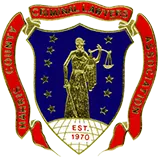Not Guilty
Driving While Intoxicated (DWI) .12 Blood Draw DWI
GP was found asleep behind the wheel of his SUV, on the shoulder of US-290. The engine was running, but his SUV was in park and his seat was reclined. A passing motorist saw that the headlights were on but the car looked empty, and so they called 911. Although GP was several miles beyond Jersey Village, a Jersey Village officer had been on NB 290 when the dispatch call went out, so he was there within minutes.
The video evidence showed that, although GP was groggy for a few moments upon waking up, and could not tell the officer how long he had been there, his speech was not slurred, and he did not have any difficulty with his balance or coordination. When GP produced his drivers license, the officer noted that he was only 19. He admitted to drinking two beers at a restaurant, where he had dinner with several friends who were of age. He told the officer that he felt totally normal when he left the restaurant, but he decided he should pull over as soon as he began to feel any effects from the alcohol. GP performed fairly well on the field sobriety tests, but the officer arrested him.
The officer could have ended his investigation there and charged GP with Driving Under the Influence by a Minor. It is a Class C misdemeanor for a minor under 21 to drive with nay detectable alcohol in his system, and it is punishable by a license suspension and a fine up to $500, but no jail time. GP would have had no valid defense to that charge. Instead, the officer asked GP to blow into the Intoxilyzer 5000, and when it said his BAC was 0.12, the officer charged GP with the more serious DWI, punishable by up to 6 months in jail and a $2,000 fine. GP initially applied for Pretrial Diversion, a probationary program that would have allowed him to earn a dismissal of the DWI by demonstrating model-citizen behavior for a year, taking classes, and performing community service. When he was denied entry—because he was a minor illegally drinking at a restaurant—we decided to go to trial on his case.
At trial, the officer admitted that it was certainly safer to pull over if you feel yourself becoming intoxicated than to continue driving. He also testified that, although pulling onto the shoulder of the freeway is often not the safest option, the neighborhood into which GP would have been exiting if he had gotten off the freeway was a high-crime neighborhood, and he would worry for the safety his own child just sitting in a vehicle there for several hours. Finally, the officer testified that no one knew when GP had pulled over, and that although the engine was running when he arrived, it was clear that GP had stopped operating his car to take a nap when he pulled over and reclined his seat.
The State’s breath-testing expert admitted that, if we do not know what time a driver stopped driving, it is impossible to extrapolate their BAC from a test taken hours later. She also testified that, after consuming alcohol, especially with food, it can take up to several hours of that alcohol to be fully absorbed. She also agreed the if he had left the restaurant shortly after his last drink, feeling no effects from alcohol, but reported later feeling those effects beginning to occur, that would be consistent with a delay in the absorption of alcohol, and that such a person could have been below the legal limit when he began feeling those effects.
We argued that, although he was a minor and should not have been drinking—much less drinking and driving—at all, the moment he began to feel the effects of alcohol, he did the right thing. There was also no evidence that, at the time that he made that decision, he was over the limit—in other words, he pulled over before he became intoxicated. We argued that he was overcharged, and should instead have been charged with DUI, and not DWI. Because the State could not show that he was intoxicated when he chose to do the right thing, the jury found him Not Guilty.

